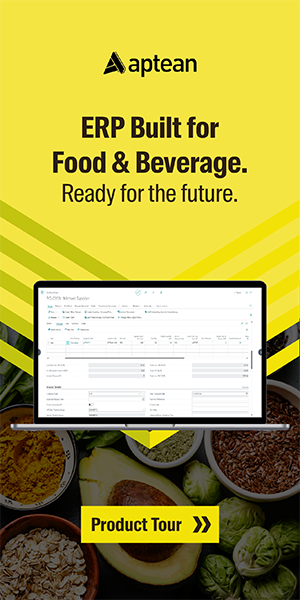The FDA’s 30-month extension of FSMA 204 compliance from January 2026 to July 2028 presents a strategic opportunity for forward-thinking food manufacturers to implement comprehensive traceability systems that deliver competitive advantages far beyond basic regulatory compliance.
Eight leading food industry organizations—including GS1 US, FMI, IFPA, IFT, NASDA, AFDO, IFMA, and IFDA—formed the Food Industry FSMA 204 Collaboration, a united effort to promote standardized practices and accelerate readiness across the sector.
This collaborative approach develops educational tools and data-sharing standards while bringing stakeholders together to reduce implementation barriers. Companies engaging with these initiatives gain industry best practices while contributing to future traceability standards.
Delaying the Deadline
The FDA delayed FSMA 204 compliance by 30 months, with the agency noting that “even those few entities who are well positioned to meet the final rule’s requirements by January 2026 have expressed concern about the timeline, in part because of their reliance on receiving accurate data from their supply chain partners.”
While some manufacturers view this as breathing room, industry leaders recognize an unprecedented window to build transformative traceability capabilities. Experts note that added time should not be viewed as a reason to delay. If anything, it creates a valuable window to get ahead. It also provides an opportunity to major retailers who are demanding end-to-end traceability independent of the FSMA requirements.
FSMA 204 requirements are substantial. Manufacturers handling foods on the Food Traceability List—including leafy greens, tomatoes, cucumbers, seafood, and soft cheeses—must capture Key Data Elements at Critical Tracking Events and provide traceability data to the FDA within 24 hours upon request.
Driving Excellence
Smart manufacturers are asking: What if our traceability system didn’t just meet regulatory needs, but drove operational excellence? The answer lies in viewing traceability as business intelligence with bi-directional tracking capabilities and real-time database updates.
With the average cost of food recalls at $10 million, rapid contamination source identification can mean the difference between targeted withdrawal and catastrophic industry-wide recall.
Creative Foods saw dramatic improvements after implementing Aptean Food & Beverage ERP, including “greatly improved time to perform traceability exercises (from four hours to 30 minutes)” plus “real-time visibility into inventory data, allowing the company to decrease inventory shortages and increase order efficiency.”
Culinary Collaborations LLC implemented a traceability system allowing them to track seafood from bait to plate—capturing critical data across oceans and continents, positioning them for regulatory success while supporting sustainability goals.
Looking Beyond Manual Processes
While sortable spreadsheets may meet regulatory requirements, they can still fall short when speed and agility are most critical. Manual processes create vulnerabilities that become costly during emergencies.
Modern food ERP systems eliminate these through integrated, real-time data capture. Advanced platforms facilitate automatic granular data collection by intelligently scheduling all information capture and quality control checks ahead of time through integration with smart sensors and scales.
With systems like Aptean’s solutions, manufacturers have the ability to perform a full product recall in under 60 seconds using bi-directional tracing data, plus automated notification capabilities for rapid customer communication.
Rather than focusing merely on compliance and on their single link in the supply chain, leading manufacturers use traceability to gain visibility into the entire supply chain that shields them from food safety risks while helping them make better sourcing decisions.
This visibility proves invaluable in volatile supply chain environments, enabling precision responses rather than panic reactions to shortages, delays, and quality issues.
What this means for ERP Insiders
Accelerate digital infrastructure investment. The FSMA 204 extension creates a narrow window for strategic technology investment. Food manufacturers should prioritize setting the foundation for digital transformation with an industry-specific ERP system rather than waiting for the 2028 deadline. Aptean’s food-specific ERP solutions offer purpose-built traceability tools that provide real-time visibility from raw materials to finished goods. The company’s flexible cloud deployments on the SaaS model easily scale as businesses grow while unlocking cost savings and providing enhanced data protection. Tech leaders should begin ERP evaluations immediately to ensure systems are operational well before the July 2028 compliance deadline.
Build competitive advantage through quality integration. Forward-thinking manufacturers should leverage the extension period to implement integrated quality management systems that exceed basic traceability requirements. Aptean’s Food ERP has out-of-the-box quality assurance capabilities that demonstrate this approach by providing real-time visibility on checks, non-conformances, and corrective actions with legal and compliance checks occurring in real time, with flags, escalation and line stop capability. This prevents significant food safety issues from leaving the factory while creating audit trails that streamline regulatory inspections. Baker Boy’s implementation of Aptean Food & Beverage ERP enabled them to achieve British Retail Consortium (BRC) certification along with Global Food Safety (GFSI) and HACCP certifications.
Leverage automation for recall readiness excellence. The most significant competitive advantage lies in automation capabilities that transform recall response from reactive crisis management to proactive risk mitigation. Aptean’s ERP exemplifies this approach with built-in functionality that lets manufacturers perform bi-directional product recalls using tracing data all the way from the material or item level and up along through integrations with Microsoft Outlook and automated templates that make notifying customers about recalls quick and efficient. This capability becomes even more valuable considering that Creative Foods reduced their traceability exercise time from four hours to 30 minutes after implementing Aptean’s solution.






